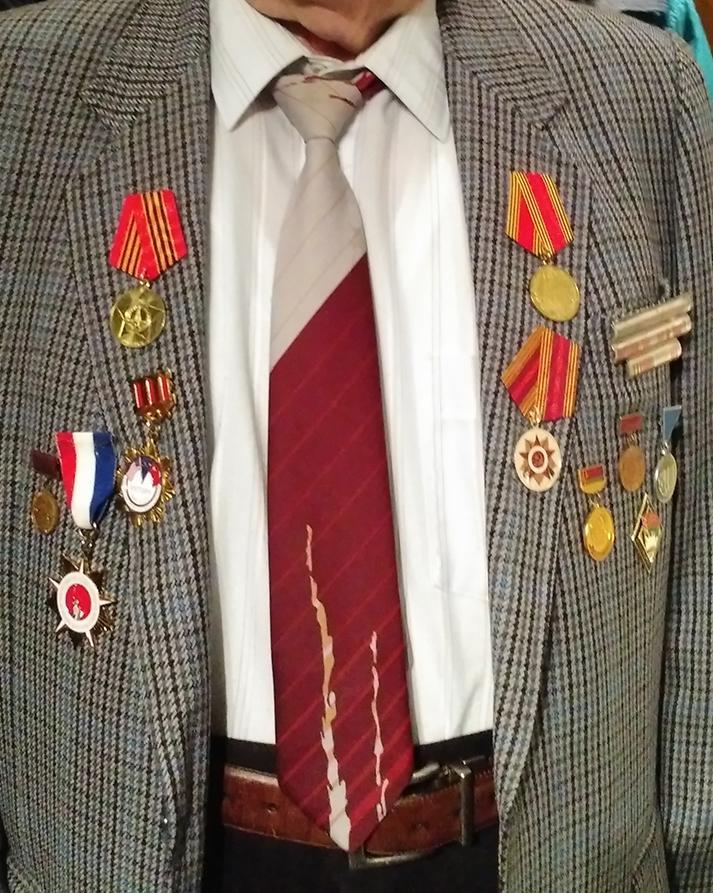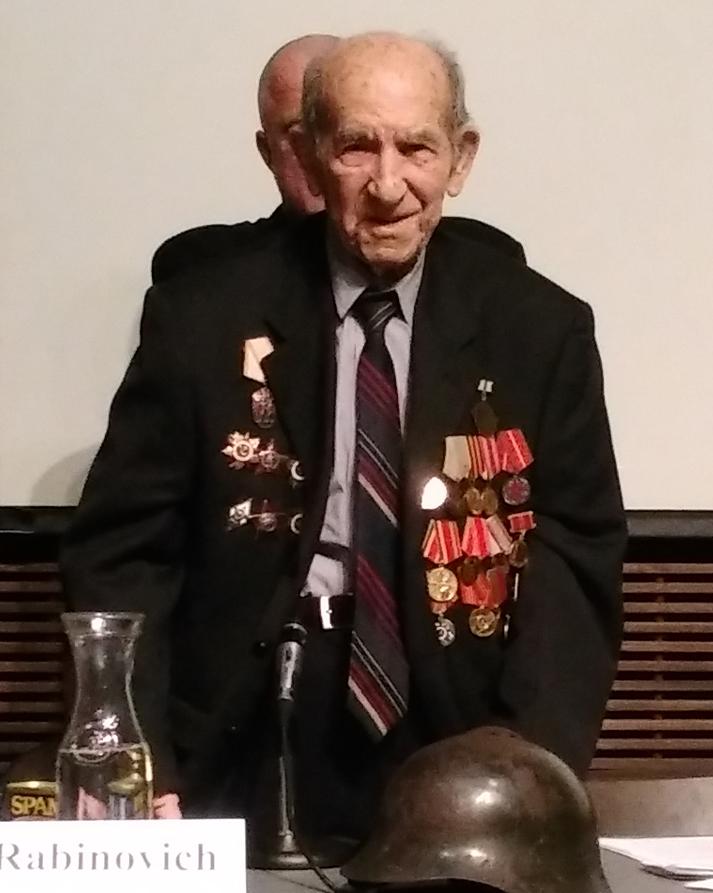Words of wisdom from a 94-year-old veteran
Last evening, I attended one of the Dr. Harold Deutsch World War II History Roundtable events at Fort Snelling. After a welcome and announcements, the moderator asked veterans of World War II to stand up to be acknowledged. Last night, in a packed auditorium, only four men stood. The moderator did not seem surprised at the low number; in fact, he seemed resigned it was only a matter of time before no one was left to stand.
One reason these events are so powerful is that each lecture is followed by a panel of veterans who bear witness to the evening’s topic. I’ve listened to soldiers describe fighting in Bastogne, constructing landing strips of crushed coral in the Pacific, watching the events unfold at Pearl Harbor. Many veterans are hard of hearing, some get a little confused, but the audience is always rapt because we know these first-person accounts are on the cusp of being lost to history.
Last night’s lecture was by history professor Dr. Roger Reese, and the topic was the eastern front from the perspective of Soviet soldiers. It was an incredible honor two Soviet veterans were there to provide testimony, their words translated into English by volunteers.
The first man, Cemen Paley, an ethnic Belorusian, was the younger of the two, 87 or 88, by my guess. He described how, as a young teen, he had been taken by a military unit, a practice not uncommon at the time. He and other boys were considered “sons” of the unit, and they ran errands, changed bandages, and generally did whatever task or errand needed to be done. He described how, when he was fourteen, on his way back from a trip procuring strawberries, he watched some of the other “sons” blown to pieces. On another occasion, he described an aerial bombing where the German planes flew so low and close he could see the Germans’ sneering faces. When he was fifteen, he tried to join a fighting unit, but since he was still too young, he was sent to work on a collective farm. He was told the best thing he could do to support the war was to grow grain so soldiers on the front line could have bread.
The second man, Jacob Rabinovich, 94, was also an ethnic Belorusian. Jacob wore a navy suit coat dripping with medals (the cloth of the suit coat itself seemed to be dripping off of his shrunken frame). Jacob had been a machine gun squad commander involved in the defense of Leningrad, a brutal multi-year campaign that resulted in more than 1.5 million deaths.
Three particular moments caught my attention during Jacob’s testimony:
1. Like other veterans, it seemed favorite stories were humorous ones. Perhaps that is a defense mechanism veterans use to avoid talking about the horrors of war. And in Leningrad, horrors were plenty. Jacob explained how, on one of his three intelligence-gathering missions behind German lines, he captured a German soldier who was brought back for interrogation. But, what elevated Jacob to hero status among his peers was not the fact he had gone behind enemy lines or even that he captured a German: it was because that particular German had been guarding a cache of chocolate. It was a delight to watch Jacob laugh as he told his story of handing out the chocolate to his fellow soldiers.
2. In this post-Cold War era where Russia is still the ‘evil enemy,’ it was a surprise to hear Jacob’s gratitude to America and to American soldiers. Two different times during his testimony he made a point of thanking America for our support. It is too easy to forget we were Allies fighting a common enemy.
3. In the Q&A afterward, a student asked what words of wisdom Jacob had for young people who might not know much about World War II or war in general. His powerful and emotional answer was unequivocal: Fight for Peace.


